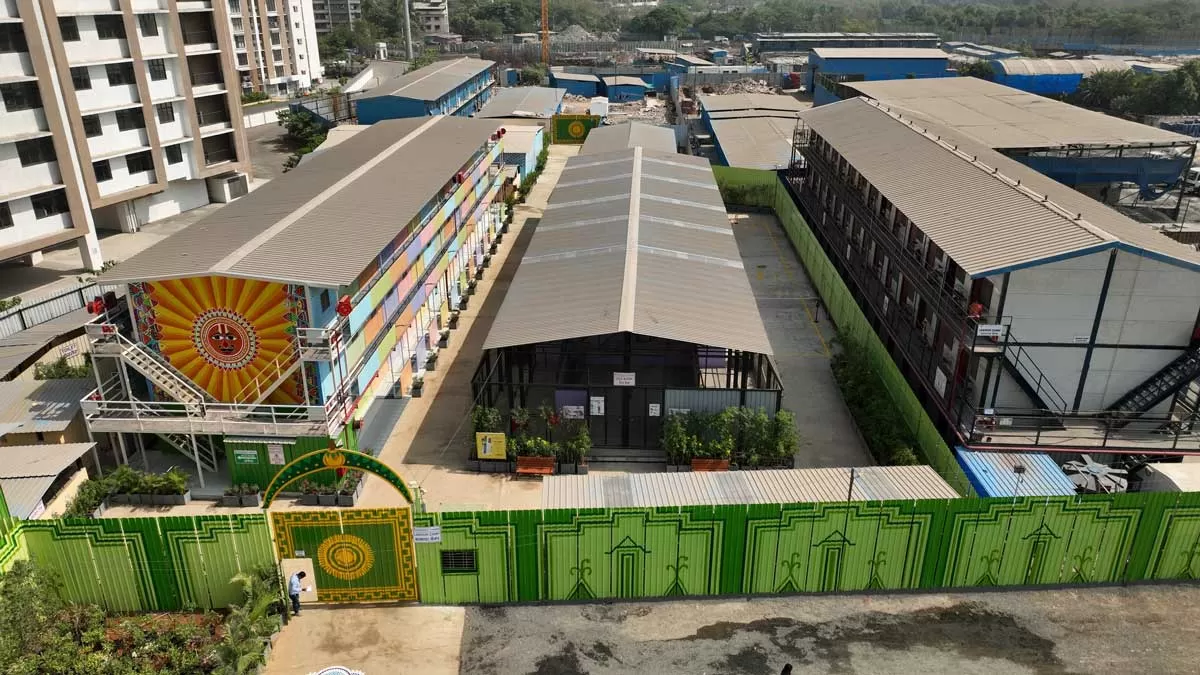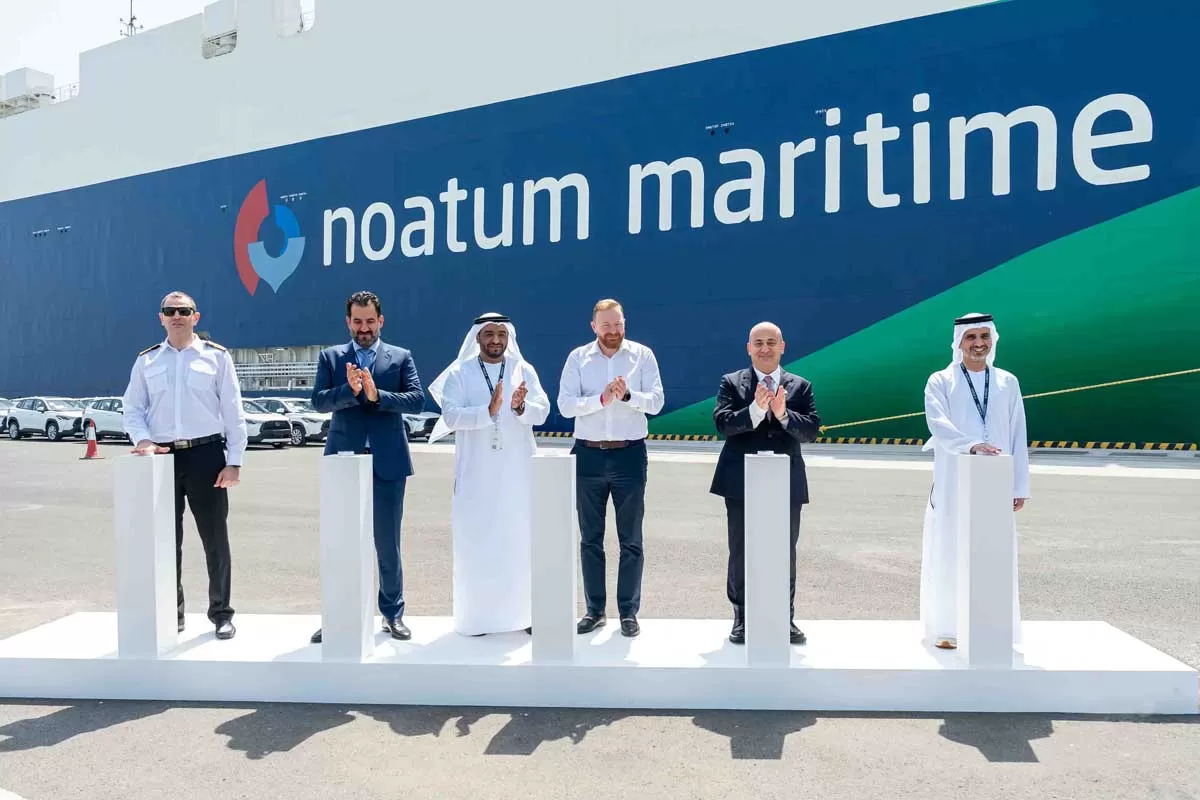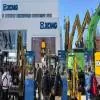´Smart´ should be a holistic, integrated path that is people and eco-friendly, says
Sandeep Mittal.
Smart is not just technology-related as in artificial intelligence, robotics and mobile apps, but a holistic and integrated approach to the life and business processes with minimal impact on the planet and maximum impact on people.
In its haste for development and progress, mankind has ripped the planet apart, especially after the industrial revolution. This generation is the most comfortable, surrounded by conveniences of every kind, unthinkable just a hundred years ago, all thanks to the very same industrial revolution. But how smart have we been? Let´s take trees as an example. Since human civilisation came into being, a recent study estimates that we are left with just 3 trillion trees, just 50 per cent of the original number. This includes all the social forestry and intervened plantations that humankind has undertaken. The human population has grown to 7.2 billion since. Trees give us oxygen that we inhale and take back what we exhale. This is true for other species too, with which we share this planet. Trees continue to disappear at an alarming rate leading to fears of oxygen depletion and deprivation. In other words, we are slowly killing ourselves! How smart is that?
How smart is smart?
The indicator of progress for a nation or state has been GDP, which is heavily loaded in favour of industry and commerce with scant respect to the environment and planet. Nobody talks about GEP or Gross Environmental Product! We would not even know how to go about it. The size and share of the construction industry is also assessed as a percentage of GDP. Buildings are a significant consumer of energy apart from being one of the highest repositories of embedded energy.
In the above context, what really is smart for the construction industry? Is it just artificial intelligence, robotics, the Internet of things, mobile apps integrated into the construction process and facility management? Or is it also about responsible consumption, environmental sustainability, mutual respect for all things animate and inanimate, inclusivity and yet remaining people-centric in our trajectory towards smartness?
The smart approach
At Anutone, we have adopted a five-pronged CESPI approach to our goals in what we think constitutes smartness with continuous improvement programmes to keep besting our goals apart from benchmarking with others in the industry globally.
- Context smart
- Energy smart
- Sustainability smart
- People smart
- Inclusivity smart.
Context smart
Content has to be contextual to remain contemporary and relevant. At Anutone, we consciously strive to ensure all our products are contextual to the times we live in by anticipating the near future. Changing cultural values, shifting global trends, fashion styles and people-centric preferences are all sniffed out to keep us ahead of the curve. Recent product launches of Strand Colors and Grafix panels buttress our claims. Grafix is an interesting product, wherein customer-generated selfies can be converted into an acoustical surface finish for bespoke interiors.
While we are into drywalls, ceilings, panelling and acoustics, which are essentially interior surface finishes, at Anutone, we keep ourselves abreast of allied technologies and explore how we can add value to result in smarter buildings. Our adoption of integrated lighting is exciting. LEDs have signalled a paradigm shift. Anutone has introduced Skelet Uno ceiling grids with integrated LED lighting. Along with Subtex Nubby ceiling tiles that have high light reflectance, the ceiling system harvests natural light to ensure abundant daylight views and low-energy lighting that alters its intensity with occupancy and lux levels.
Energy smart
Embedded energy: We manufacture (in-house, contract, outsourced) and promote products for drywalls, ceilings, panelling and acoustics that boast the lowest embedded energy ex-warehouse in the industry. For example, we use air-curing cements like magnesia that are exothermic and need no in-process heating for manufacture of Tufbloc drywalls. Every other product in this category is energy-intensive.
Conserved energy: We supply products to project sites for buildings that help conservation of energy and contribute to green ratings for the management of facilities. The major portfolio of products, like the Ekcel range, is made in India and so energy spent in transportation is much lower than goods imported from foreign shores, near or far. Made in India also includes solar drying and natural ventilation for post-manufacturing processes. Installed products contribute to energy savings for the building owner, tenant, occupant and other stakeholders like Synth-filled drywalls, which ensure air-conditioning remains conserved in cooled spaces and does not dissipate to unoccupied sections of an office on the same floor.
Sustainability smart
Energy conservation is often confused with sustainability. However, these are two different aspects that impact the planet directly. At Anutone, we constantly look at how our products, services and solutions create the minimum impact on the planet from the energy and sustainability viewpoint. For our classic timeless product, Strand, and its variants, we source the pinewood through social forestry programs and manmade plantations.
Anutone is researching new acoustical products that use agri-wastes as core content. Inspiration for acoustical ceilings and panelling in India has almost always come from advanced countries who do not have jute or coconut as a cash crop, for instance. Most of the products are imported and use the raw materials of those countries. Hence, indigenous usage of materials that add value to the farmer and customer is true smartness and the key to sustainability.
People smart
People remain central to the very idea of Anutone products, services and solutions. The manufacture, supply, installation and usage of our products should enhance the experience for all stakeholders. From employees to consultants, contractors to customers, users to maintenance crews and everybody else in between, it must evoke positivity.
Anutone endeavours to ensure the multisensory perception of its products for space users. Take, for example, our wooden acoustic panels, Slats. They are aesthetically pleasing to the eye, comfortable to the ear in terms of acoustics, warm to the touch for being a wood finish yet rugged enough for easy maintenance. Being E1 panels with low emissions makes them friendly to the nose and, though taste does not apply to our products, the other four positive qualities ensure they do not leave a bad taste in the mouth!
At Anutone, we look at all our products in a similar fashion. Further, we examine the functional necessities of a space in terms of fire-safety, durability and ease of installation and maintenance. In short, our products are people-friendly when installed and people-friendly for the life-cyle of the building.
Inclusivity smart
Ethics is a common value among corporates, but inclusivity is much more compassionate and encompassing. If a corporate and its people can have an inclusivity vision, which is not what politicians mean in terms of the underprivileged or lip-service to mandatory CSR, but in consideration for all beings, it´s a fail-proof means of never getting it wrong. While the primary motive of a business is profits and may also include all the smart goals as above, as long as it grounded in inclusivity, it will never stray.
Why does a theme on smart have to include ethics? The vision, mission and values of a responsible corporate are initially and originally always built on the foundation of ethics. Hence, in our quest for smartness it is equally smart to remain grounded in ethics. That would be true smartness. Any smartness bereft of ethics is a compromise and not really smart!
We have a recent example of a car major having deliberately fudged its emission declarations and now being penalised billions of dollars apart from further billions that would be needed for vehicle recalls and rectifications. There are many more such examples of corporations having strayed and compromised their existence.
A final word
Smart is not just technology-related as in artificial intelligence, robotics and mobile apps, but a holistic and integrated approach to the life and business processes with minimal impact on the planet and maximum impact on people.
About the author:
Sandeep Mittal, is Managing Director of Anutone Acoustics Ltd, a Bengaluru-based manufacturer of drywalls, ceilings and panelling used primarily in commercial interiors like offices, education, hotels, hospitals, government and public buildings, across India and the Middle East.

















